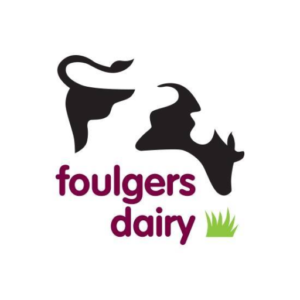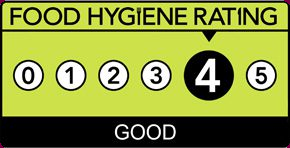What is raw cheese?
Perhaps you have heard of a product called raw cheese but are unsure exactly what it is. Proponents of raw cheese say that it is healthier and easier to digest compared to pasteurised cheese. A significant benefit is also that it contains many of the enzymes, vitamins and minerals that are missing from cheese that has undergone pasteurisation. However, critics contend that raw cheese is potentially harmful and more likely to be contaminated with viruses and bacteria that can cause disease and illness. This article aims to get to the bottom of what raw cheese is: what makes it “raw”, its history, its health benefits as well as its potential risks, and how best to purchase raw cheese for yourself.
An introduction to raw cheese: what it is
Raw cheese simply refers to varieties of cheese that have not been pasteurised. The pasteurisation, process, named after French chemist and microbiologist Louis Pasteur, was introduced in 1822 to kill off any harmful bacteria and viruses. The process involves heating the raw milk used in cheese to temperatures between 65 and 75 Celsius for a period of up to 30 minutes. As mentioned, this helps remove any pathogenic microorganisms that can potentially cause sickness and harm when ingested. The downside, however, is that pasteurisation also kills off many of the microbes that are beneficial for health and nutrition. To keep raw cheese safe and healthy, other processes and safety standards must be employed by dairy producers. Almost all cheese that you can buy in the store or supermarket is pasteurised, while raw cheese often comes specially made by a limited number of dairy producers.
The History of Raw Cheese Making
The history of raw cheese has been around for as long as cheese making itself. From the earliest practices in prehistoric times thousands of years ago to the Sumerians, Egyptians, and eventually medieval Europe, cheese was made from raw, unpasteurised milk. Raw milk contains two strains of protein, casein, and whey. As the raw milk curdles, the bacteria consume the lactose sugars and convert them into lactic acid. The casein proteins are converted into lumps that give the milk a sour aroma, while the whey proteins turn the liquid white, giving the milk its distinctive colour. To make the cheese naturally, the whey is drained out and the casein curds are cut into small pieces. The curds are heated to around 30 degrees Celsius: not hot enough to induce pasteurisation, but enough to ferment the curds while retaining healthy bacteria and enzymes. The curds are then pressed into shape, dried, and aged for however long the dairy producer deems necessary. This has been the most common way to make cheese up until the 20th century when pasteurisation became mainstream.
The benefits of raw cheese
As mentioned before, there are several health benefits to raw cheese that are lost in the pasteurisation process. Here are some of the advantages raw cheese has over pasteurised varieties:
• Raw cheese contains many vitamins, enzymes, proteins, and minerals that are beneficial for our health. Consuming raw cheese can help lower cholesterol, protect against bone loss, and increase vitamin B and C content in the body.
• Proteins in raw cheese can have enhanced antioxidant effects. They can increase the amount of glutathione in the spleen which allows the body to rapidly produce white blood cells that help improve the body’s immune system.
• Raw cheese contains several antimicrobials such as immunoglobin, lactoferrin and xanthine oxidase. Not only do these compounds help boost immunity and fight off infections, but they can also increase the lifespan of the cheese, allowing it to be stored for months longer than pasteurised varieties.
• Consuming raw cheese can increase the amount of lactobacillus in your digestive system, as well as other beneficial lactic acids and enzymes. Not only does this improve digestion, particularly in those who are lactose intolerant, but can also potentially reduce the effects of stress and anxiety.
• According to studies on those who consume raw cheese, there is a potential decrease in the risk of allergies, asthma, and eczema. This may be due to RNA molecules in the cheese that helps boost and regulate the immune system.
• Finally, raw cheese can be tastier than pasteurised varieties. The natural bacteria found in raw cheese contribute to its flavour which is often missing from pasteurised cheeses.
Is raw cheese safe?
Much of the controversy related to raw cheese comes from incidents that occurred during the 19th century. Back then, health standards within the dairy industry were lax, and the conditions around dairy production were generally unsanitary. This led to cattle becoming sick, and producing milk infected with viruses and harmful bacteria which would then be passed on to anyone who consumed it, often leading to serious outbreaks of disease.
As pasteurisation became standard practice in milk production, the risk of diseases such as tuberculosis being passed from cattle to people decreased considerably. While standards were poor back then, these days dairy producers are required to conform to much stricter health and safety procedures when it comes to making raw milk and cheese.
There is always a risk of contamination with raw cheese, those with lower immune systems, pregnant and breastfeeding women, the elderly, children, and those with chronic illnesses are advised to avoid consuming raw cheese. However, the idea that raw cheese is inherently dangerous is an outdated one, and when produced and handled safely offers many benefits that are missing from pasteurised cheeses.
How to buy raw cheese
By law in the UK, raw cheese cannot be sold in a store or supermarket but must come from the dairy producers themselves. These dairy producers must adhere to strict rules regarding labelling and undergo regular health and safety testing to sell raw products. To buy raw cheese for yourself, you must either buy it locally from a farm that produces it or from a milk delivery service such as Foulgers Dairy. Here at Foulgers, we have an arrangement with Fen Farm Dairy to supply and deliver their raw milk and cheese products directly to customers. To find out more about our products and services, please visit our online store or get in touch with us today.

